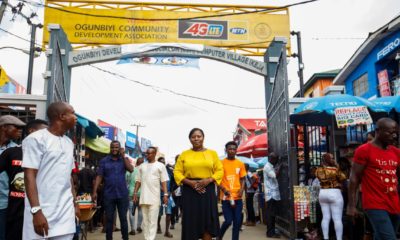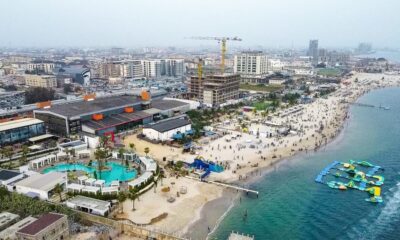Lagos state has topped the chart of states with huge debt profiles, with a domestic debt standing at N658.95 billion as at the end of December 2021, from an earlier figure of N532.12 billion as of September 30, 2021.
In a recent report released by the Debt Management Office (DMO), this figure represents an increase of N126.83 billion in the last three months of the year 2021
Following behind is Ogun state, with a total of N232.62 billion debt as of December 2021. The state’s debt profile rose from N192.41 billion to N232.62 within three months, making a debt increase of N40 billion.
The third indebted state is Rivers State, with N225.50 billion. The DMO however noted that the stock figures for Rivers State were as at September 30, 2021.
Emerging the fourth indebted state is Akwa Ibom, with a debt profile of N214.60 billion, up from N234.85 billion recorded in September.
Imo State, Cross River and Bayelsa have debt profiles of N205.18 billion, N159.81 billion and N154.613bn respectively.
Also, Delta state, Plateau and Oyo state emerged 8th, 9th and 10th states with the highest domestic debts, with debt profiles of N154.61 billion, N150.49 billion and N142.56 billion respectively.
Meanwhile, the DMO revealed that the Federal Government incurred N950bn new domestic borrowing between January 2022 and March 11, 2022.
In a recent presentation of the Public Debt Data as of December 31, 2021, the Director-General of the DMO, Patience Oniha disclosed that the Federal Government is considering all options to raise funds externally.
She said: “All options for raising funds externally are being considered. These include funding from multilateral and bilateral sources, the International Capital Markets and the $3.35bn Special Drawing Rights allocated by the International Monetary Fund to the Central Bank of Nigeria”.
She further disclosed that the Federal Government also plans to borrow an additional N1.6tn, while the 2022 debt target for domestic borrowing is N2.57tn.
Investors King had earlier reported that financial experts raised concerns over the country’s huge external and domestic debts. Chairman, Manufacturers Association of Nigeria (MAN), Apapa branch, Frank Onyebu had noted that interest payment on the nation’s debt is almost more than what is available for development.

 Forex3 weeks ago
Forex3 weeks ago


 Naira2 weeks ago
Naira2 weeks ago
 Billionaire Watch2 weeks ago
Billionaire Watch2 weeks ago




 Naira2 weeks ago
Naira2 weeks ago




 Naira4 weeks ago
Naira4 weeks ago




 Naira2 weeks ago
Naira2 weeks ago


 Naira7 days ago
Naira7 days ago
 Banking Sector4 weeks ago
Banking Sector4 weeks ago






















